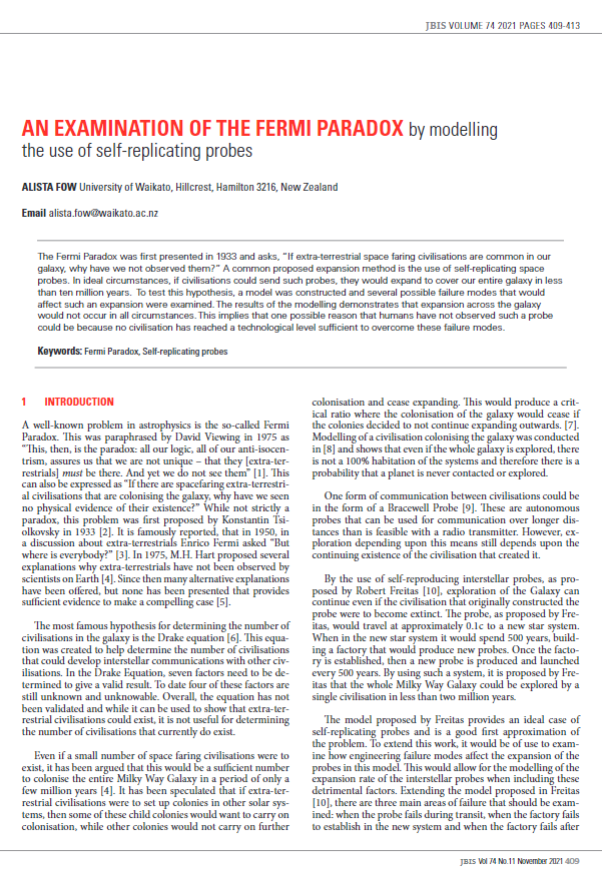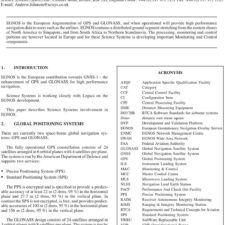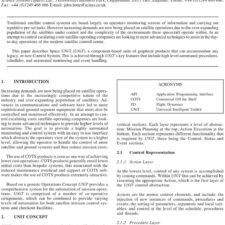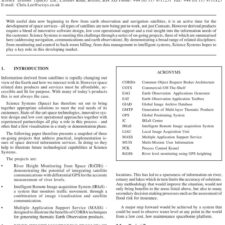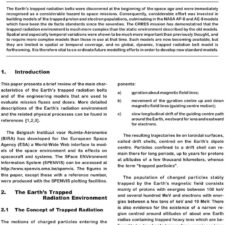An Examination Of The Fermi Paradox By Modelling The Use Of Self-Replicating Probes
£5.00
A. Fow. (2021), JBIS, 74, pp.409-413
Refcode: 2021.74.409
Abstract:
The Fermi Paradox was first presented in 1933 and asks, “If extra-terrestrial space faring civilisations are common in our galaxy, why have we not observed them?” A common proposed expansion method is the use of self-replicating space probes. In ideal circumstances, if civilisations could send such probes, they would expand to cover our entire galaxy in less than ten million years. To test this hypothesis, a model was constructed and several possible failure modes that would affect such an expansion were examined. The results of the modelling demonstrates that expansion across the galaxy would not occur in all circumstances. This implies that one possible reason that humans have not observed such a probe could be because no civilisation has reached a technological level sufficient to overcome these failure modes.

